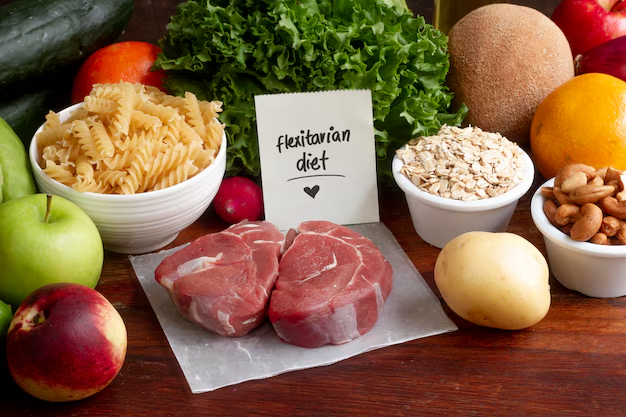
When it comes to improving your health, the choices you make at mealtime matter more than you might think. Simple yet effective changes in your eating habits can lead to lasting improvements in your overall well-being, boost your energy, and help you maintain a healthy weight. Rather than focusing on restrictive diets or quick fixes, the key to sustainable health is developing habits that work for you in the long run. In this blog, we’ll explore seven healthy food habits that can transform your diet and set you on the path to better health.
1. Prioritize Whole Foods Over Processed Ones
One of the simplest and most impactful changes you can make is to prioritize whole, nutrient-dense foods over processed ones. Whole foods—such as fruits, vegetables, whole grains, lean proteins, and healthy fats—are rich in essential vitamins, minerals, and fiber. They support optimal health by nourishing your body with what it needs and keeping you full and satisfied.
Processed foods, on the other hand, often contain added sugars, unhealthy fats, and excessive sodium, which can contribute to chronic health issues like obesity, heart disease, and diabetes. By opting for whole foods, you’ll fuel your body with nutrients that promote long-term wellness.
2. Practice Portion Control
In a world where large portion sizes are the norm, practicing portion control is an easy yet powerful way to prevent overeating. Eating large portions, even of healthy foods, can lead to consuming more calories than your body needs, which may result in weight gain over time.
To practice portion control, consider using smaller plates, measuring out your servings, and avoiding eating straight from large packages. Focus on eating until you’re comfortably full, not stuffed. Additionally, taking time to enjoy your meals without distractions can help you recognize when you’re satisfied and prevent mindless eating.
3. Eat More Plant-Based Meals
Including more plant-based meals in your diet can significantly improve your health. Plant-based foods like fruits, vegetables, legumes, whole grains, nuts, and seeds are packed with fiber, antioxidants, and essential nutrients, which support digestive health, reduce inflammation, and lower the risk of chronic diseases.
You don’t need to go fully vegetarian or vegan to reap the benefits of plant-based eating. Simply aim to make at least one or two meals per week entirely plant-based, or try swapping animal-based proteins with plant-based alternatives like beans, lentils, tofu, or tempeh. The more plants you eat, the better!
4. Stay Hydrated Throughout the Day
Hydration is key to maintaining a healthy body, and water is often the best way to keep your body functioning properly. Dehydration can lead to fatigue, difficulty concentrating, headaches, and sluggish digestion. Drinking plenty of water throughout the day will help you stay energized and support your body’s natural processes.
Aim for at least eight 8-ounce glasses of water a day, but your needs may vary based on activity level and climate. If plain water isn’t your favorite, consider adding herbal teas or water-rich foods like cucumbers, watermelon, and oranges to your routine for extra hydration.
5. Snack Smartly
Snacking is often seen as a “bad habit,” but healthy snacks can be an excellent way to maintain energy levels and prevent overeating at mealtime. The key is choosing nutrient-dense options that support your health rather than empty-calorie foods.
Good snack choices include a handful of nuts, a piece of fruit with nut butter, Greek yogurt with berries, or sliced veggies with hummus. These snacks are rich in protein, healthy fats, and fiber, which can help keep you satisfied until your next meal. Avoid snacks that are overly processed or high in refined sugars, as these can lead to blood sugar crashes and cravings.
6. Incorporate Healthy Fats
Many people shy away from fats, fearing they will lead to weight gain or health issues. However, healthy fats are essential for a well-balanced diet. They support brain health, improve heart health, and help the body absorb fat-soluble vitamins like A, D, E, and K.
Focus on incorporating sources of unsaturated fats into your diet, such as avocados, olive oil, nuts, seeds, and fatty fish like salmon and mackerel. These fats not only contribute to your overall health but also provide satiety, helping you feel fuller for longer periods.
7. Be Mindful of Your Eating Habits
Mindful eating is about being present and engaged during meals. It’s easy to eat on autopilot while distracted by screens or multitasking, but this can lead to overeating and a lack of enjoyment. Practicing mindful eating allows you to truly savor your food, listen to your body’s hunger and fullness cues, and make healthier choices.
To eat mindfully, try slowing down and focusing on each bite. Avoid distractions like your phone or TV, and take time to appreciate the flavors and textures of your food. This can not only help you feel more satisfied but also reduce the likelihood of overeating or emotional eating.
Conclusion
Incorporating these seven healthy food habits into your lifestyle can help you build a balanced, sustainable diet that promotes long-term health and well-being. By prioritizing whole foods, practicing portion control, staying hydrated, and adopting mindful eating practices, you’ll be setting yourself up for success. Remember, transforming your diet doesn’t happen overnight—small, consistent changes will make a big difference over time.
Start today by implementing just a few of these habits, and watch how your diet—and your health—transform for the better.












